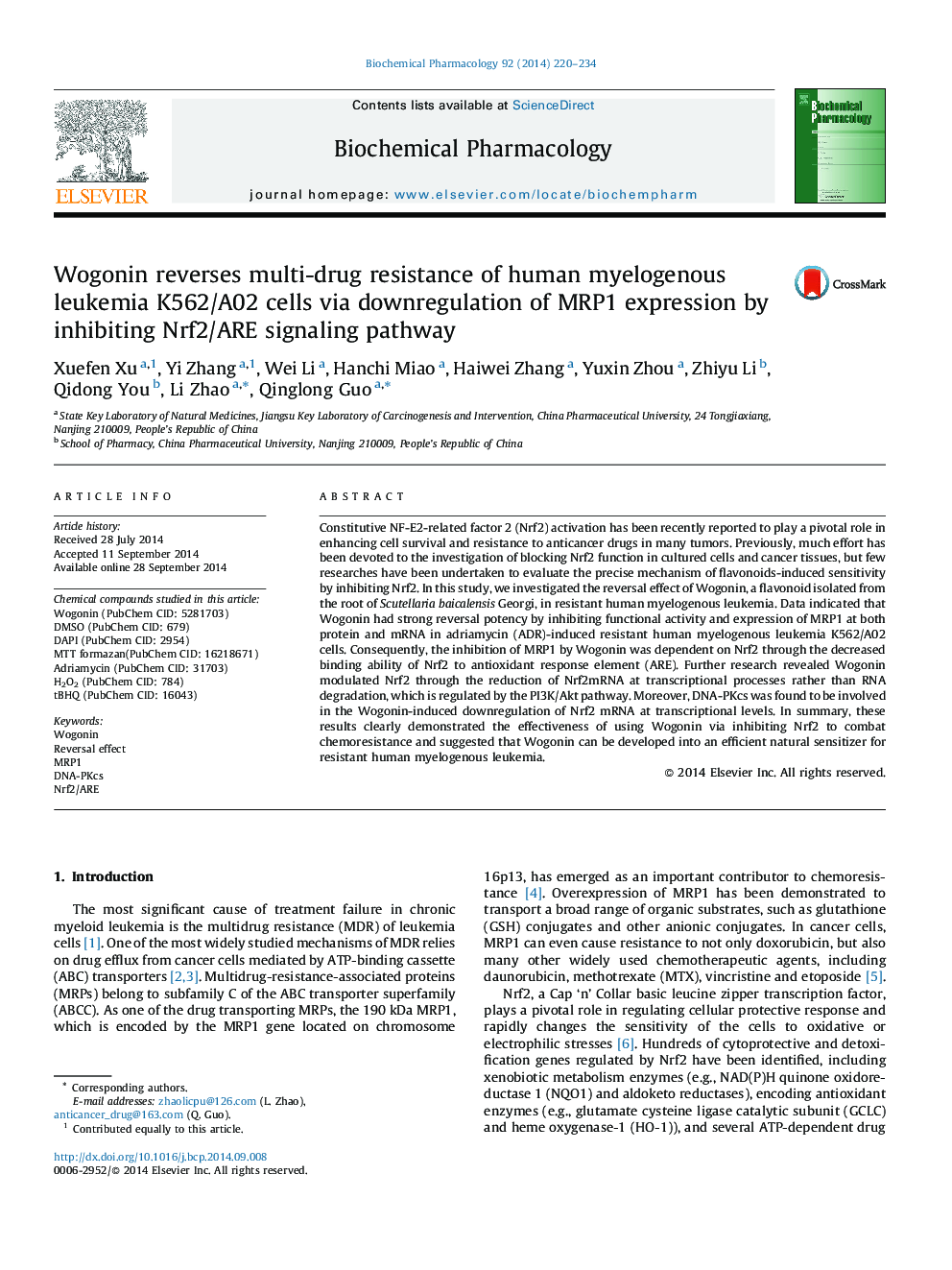| Article ID | Journal | Published Year | Pages | File Type |
|---|---|---|---|---|
| 2512139 | Biochemical Pharmacology | 2014 | 15 Pages |
Constitutive NF-E2-related factor 2 (Nrf2) activation has been recently reported to play a pivotal role in enhancing cell survival and resistance to anticancer drugs in many tumors. Previously, much effort has been devoted to the investigation of blocking Nrf2 function in cultured cells and cancer tissues, but few researches have been undertaken to evaluate the precise mechanism of flavonoids-induced sensitivity by inhibiting Nrf2. In this study, we investigated the reversal effect of Wogonin, a flavonoid isolated from the root of Scutellaria baicalensis Georgi, in resistant human myelogenous leukemia. Data indicated that Wogonin had strong reversal potency by inhibiting functional activity and expression of MRP1 at both protein and mRNA in adriamycin (ADR)-induced resistant human myelogenous leukemia K562/A02 cells. Consequently, the inhibition of MRP1 by Wogonin was dependent on Nrf2 through the decreased binding ability of Nrf2 to antioxidant response element (ARE). Further research revealed Wogonin modulated Nrf2 through the reduction of Nrf2mRNA at transcriptional processes rather than RNA degradation, which is regulated by the PI3K/Akt pathway. Moreover, DNA-PKcs was found to be involved in the Wogonin-induced downregulation of Nrf2 mRNA at transcriptional levels. In summary, these results clearly demonstrated the effectiveness of using Wogonin via inhibiting Nrf2 to combat chemoresistance and suggested that Wogonin can be developed into an efficient natural sensitizer for resistant human myelogenous leukemia.
Graphical abstractFigure optionsDownload full-size imageDownload as PowerPoint slide
